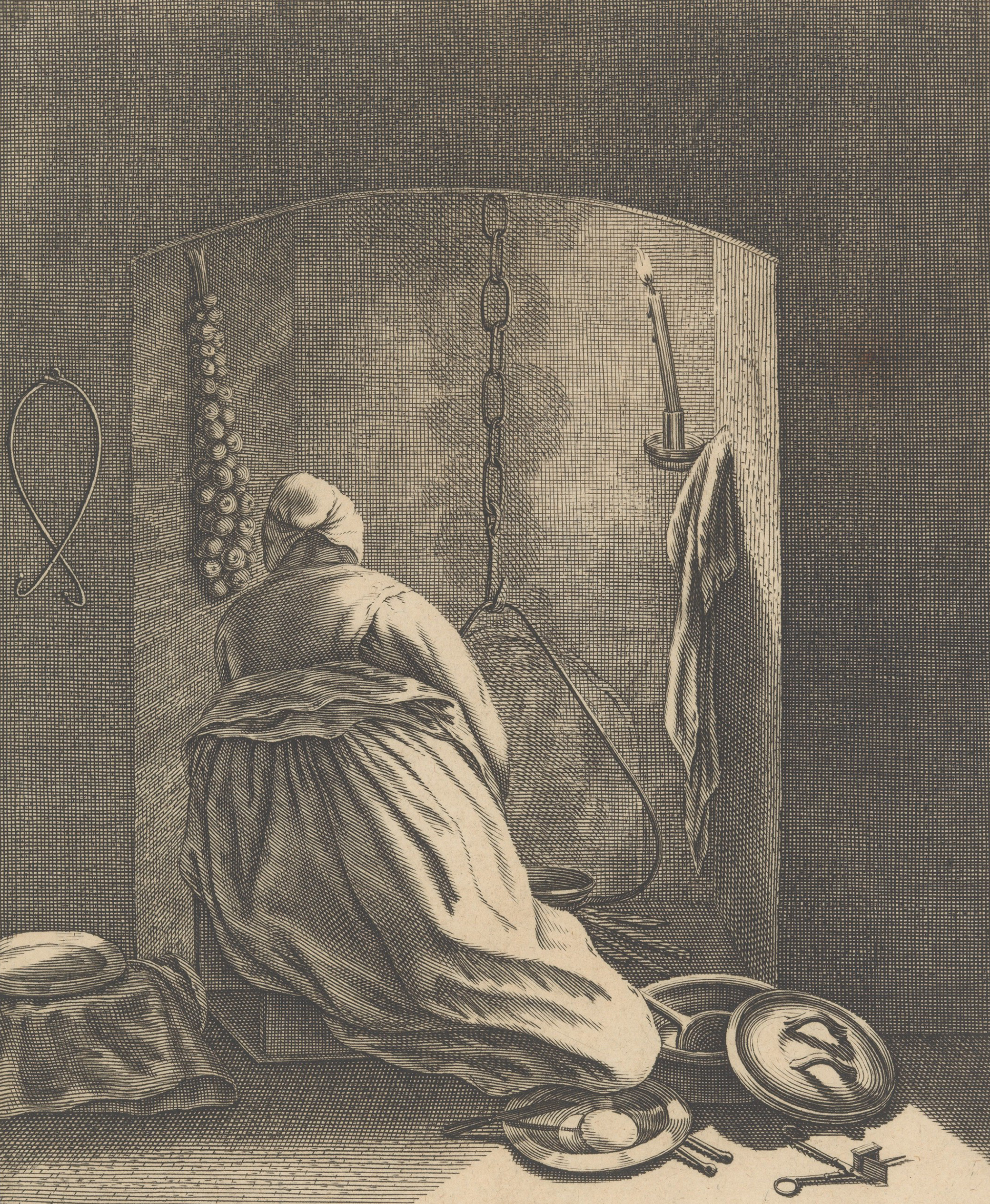
A Woman Cooking, from Five Feminine Occupations, by Geertruydt Roghman, c. 1640. The Metropolitan Museum of Art, Elisha Whittelsey Collection, Elisha Whittelsey Fund, 1956.
• “Eat Like England’s First Non-Royal Ruler with This Propaganda-Filled Cookbook.” (Atlas Obscura)
• “How Failed Quarantines Led to Twentieth-Century Measles Outbreaks.” (Smithsonianmag.com)
• “For anyone who has thought of Gilman as a hero of early feminism, I would urge another look.” (Paris Review Daily)
• Investigating a recurring design motif found in northern Mexico’s ancient mountain villages. (Archaeology)
• “Every two weeks, a language dies with its last speaker. That was almost the fate of the Hawaiian language.” (Code Switch)
• “Medieval women ‘put faith in birth girdles’ to protect them during childbirth.” (The Guardian)
• “John Muir’s spiritualized version of the natural world as a place of luminous order was something he could and did rally people like him to defend. It had a constructive side, but it is no longer possible to ignore its destructive side.” (Sierra)
• “What Covid-Scarred Cities Can Learn from the Bubonic Plague.” (Slate)
• “A lavish Bronze Age burial found in southeastern Spain may hold a queen’s remains.” (Science News)
• The history of enforced seclusion among the Nias islanders of Indonesia. (Aeon)
• “Is a Long-Dismissed Forgery Actually the Oldest Known Biblical Manuscript?” (New York Times)
• A history of People’s “Most Beautiful People.” (Jezebel)
• This week in obituaries: Norton Juster, Lou Ottens, Wilhelmina Cole Holladay, Allan McDonald, Hazel McFerson, Victor Ambrus, Charles Hill, Barbara Ess, Roger Mudd, Laura Mason, Walter LaFeber, Carla Wallenda, Otto Dov Kulka, and Betty Willingale.